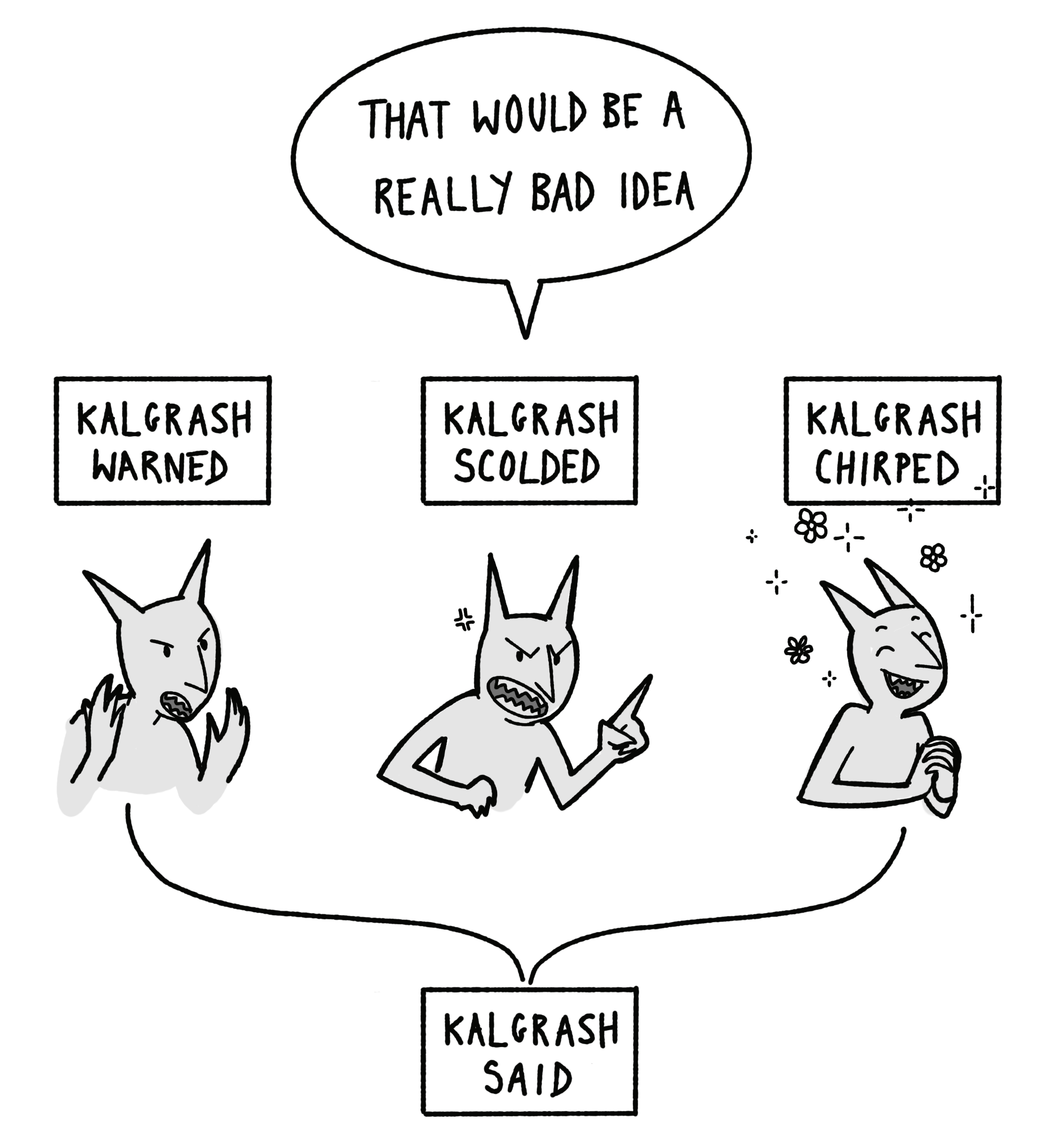The most common speech tag is said—it’s so common that readers just skim over it.
You can also use more colourful verbs (such as warned, suggested, scolded, begged, chirped and so on) to add variety, flavour or impact, but if you use them too often it starts to sound fake or forced.
(Notice in the snippet above that three of the four tags are said.)


